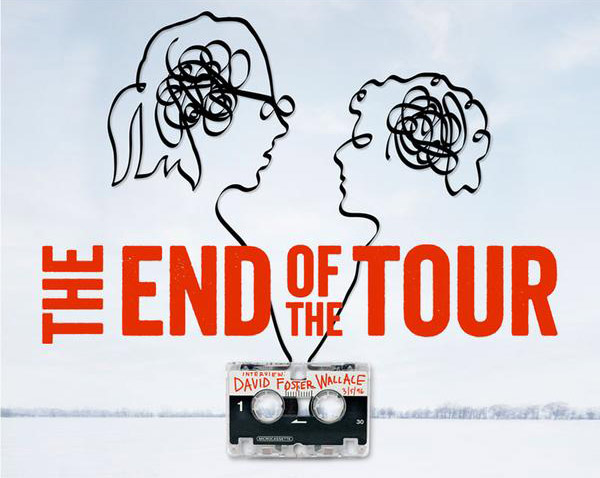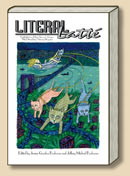There was never a cowboy in Hollywood who forgot where he put his horse. But, The End of the Tour, directed by James Ponsoldt, shows that America has evolved into a place where audiences have lower expectations for their stars. Here Jesse Eisenberg tramps in circles in a frigid Midwestern parking lot morosely clicking the unlock button on his rental keychain, as rows of silent cars seem to mock his efforts. Eisenberg’s would-be passenger drops his suitcase in the snow out of exasperation. The scene feels real almost to a fault, as does the rest of this 106-minute film.
The End of the Tour (2015)
The End of the Tour
Starring: Jason Segel, Jesse Eisenberg, Anna Chlumsky
Screenplay by Donald Margulies (based on the book by David M. Lipsky)
Directed by James Ponsoldt
Release date: July 31, 2015 (USA)
Running time: 106 min.
Rated: R
Based on the memoir Although Of Course You End Up Becoming Yourself, by David Lipsky (portrayed by Jesse Eisenberg), this story is based on tape recordings of a five-day interview with literary genius David Foster Wallace (Jason Segel) during a publicity tour for Wallace’s best selling novel Infinite Jest. Lipsky wrote the book in reaction to Wallace’s 2008 suicide, but it recounts a brighter time for Wallace, when he was at the height of his fame — though fame makes him squirm — and in a relative place of contentment, with weekly folk dancing on his calendar and big black Labradors, like stuffed animals on a sugar high, for roommates.
Wallace, as depicted in the film, is a long-haired, nearly-confirmed bachelor in a frumpy grey hoodie being catapulted into a spotlight for his dazzling wit and intellect, though that’s a bulb that shines brightest when he’s alone in an empty room with a pen, he says. His interviews are nonetheless clever — he knows himself extremely well, and also seems very in-touch with the insecure and intimidating beast of American society. Hot-button subjects are touched upon — Lipsky brings up drug addictions and an offended Wallace replies with a highly quotable and personal outburst. His main addiction in life has been television, not any other drug, even though the truth utterly lacks in sex appeal. He treasures his “regular-guyness,” and remains endearingly resistant to glamour.
The heart of the story plays out in long two-man conversations shot with handheld cameras, in cars, kitchens and hotel rooms, among other places. Lipsky’s half of the conversation is influenced by both his awe and his envy of the older man, while Wallace is distracted by and concerned about his sudden fame. Their conversations are peppered with wisdom often worth taking notes on.
The performances are excellent. Segel’s Wallace is clever, guarded, candid, unassuming and a little heartbreaking, and Eisenberg’s Lipsky is smart and dynamic, but not a person you would want to hug. Over the course of the five days, a bond of mutual comprehension develops between the two men in spite of Wallace’s occasional agitated outbursts and Lipsky’s abrasiveness. “I don’t know whether you’re a nice man or not,” Wallace says to him once, not unfairly. Watching the men clash and then make up over a meal at McDonald’s — junk food is a recurring motif — makes for an engaging piece of cinema. With a different pair of protagonists the story might have been romantic, but with the ragtag duo of Lipsky and Wallace, it is anything but.
The film provides no explanations of why Wallace is the way he is (suicidal, a writer, etc.), but as a snapshot of a few days, it’s very human and lovely.

